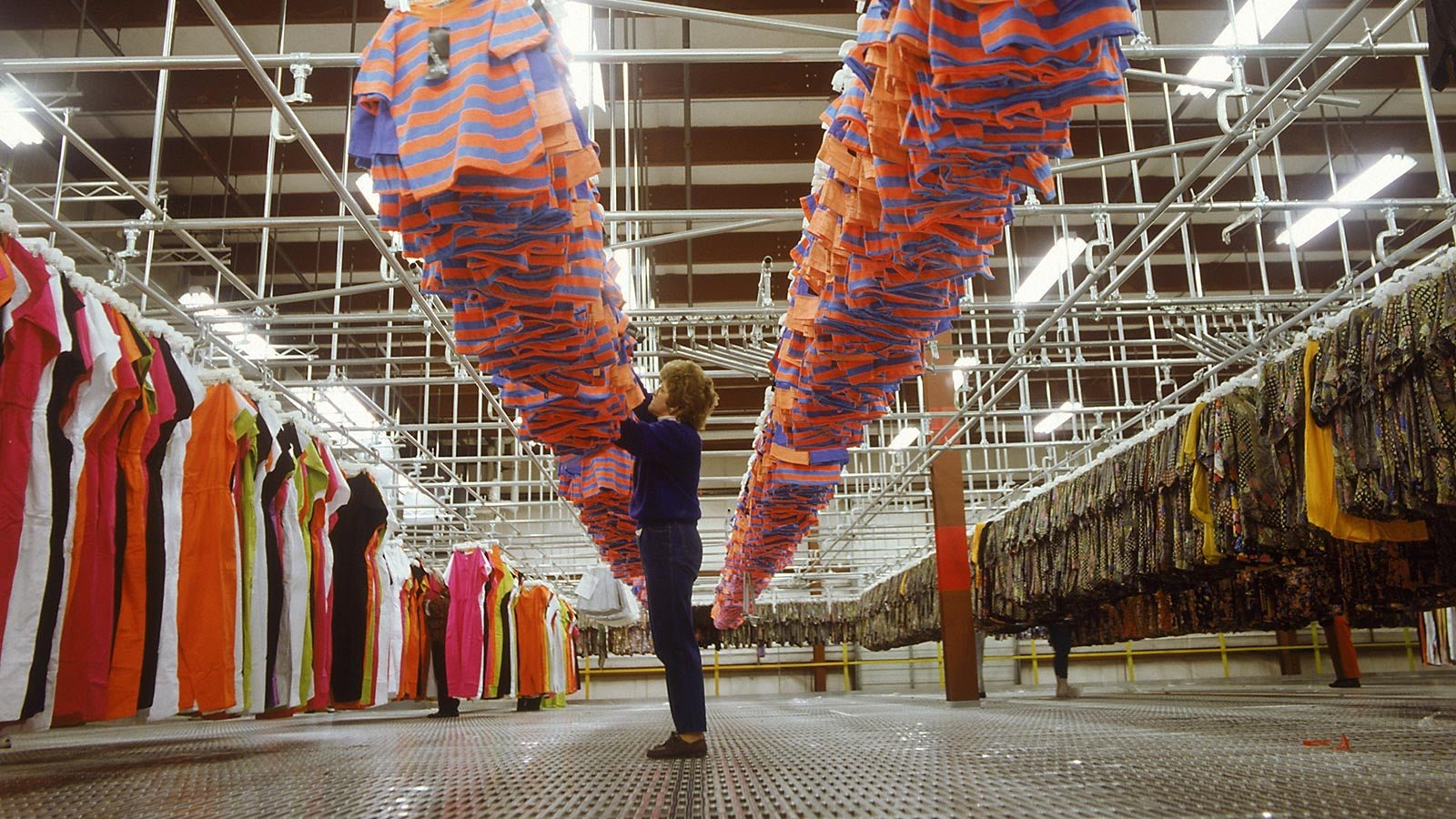How your clothes are priced by data
Before she co-founded her fashion analytics company, EDITED, Julia Fowler says working in the clothing business felt like “designing in a vacuum.” “Competitive analyses and internal reports would get circulated to us every couple of months,” she says, “so that we could have some semblance of the market, of our competitors, and of our own sales. But the information was so out of date that there wasn’t much we could learn from it.”


Before she co-founded her fashion analytics company, EDITED, Julia Fowler says working in the clothing business felt like “designing in a vacuum.” “Competitive analyses and internal reports would get circulated to us every couple of months,” she says, “so that we could have some semblance of the market, of our competitors, and of our own sales. But the information was so out of date that there wasn’t much we could learn from it.”
Imagine this scenario: you run a chain of retail stores and have a line of on-trend suede handbags that, for a reason you can’t discern, aren’t moving quickly enough off the shelf. You could run a promotion, but before you take a loss it would help to know if your competitors are selling the same bag, or a similar bag, and at what price. Fowler wanted that kind of information daily, not quarterly. So in 2009 she partnered up with Geoff Watts, a metrics-minded employee of the dairy industry, which had already embraced applying big data to make decisions about the milk market. Together, they launched EDITED.
Today EDITED caters to a glossy list of big brand retailers like ASOS, Banana Republic, Topshop, and Saks Fifth Avenue—to name just a few. Those companies pay for a dossier of charts and graphs that, combined, create a sort of dashboard for watching how products move and prices fluctuate throughout the market. Behind the scenes, “we get our data just like Google or Bing, by crawling websites and collecting all the publicly available information on them,” Fowler says. This lets users “compare entire ranges side-by-side or get granular and look at all the red dresses that came online this week in the United States within a specific price range.”
With these offerings, EDITED isn’t competing against other fashion upstarts—it’s competing against data titans like Bloomberg and Google, if anyone at all. To maintain that position and scale up, Fowler and Watts are leveraging cutting edge technologies, like the cloud—“we’re more than 99% in the cloud,” Fowler says—and deep learning algorithms, to draw stalwart conclusions faster and faster. “We do a lot of machine learning with big neural networks,” Fowler explains. “Being able to commission a whole lot of machines very quickly to verify a thesis has been useful for us. It’s also been great for stability and speed—our product is just as fast in Amsterdam as it is in Albuquerque.” Of course, tapping those tech-forward efficiencies doesn’t come without security risks. Fowler says EDITED keeps the company and its customers safe by never capturing a single byte of customer data more than it needs, and by running a private cloud.
Perhaps the most unexpected byproduct of the efficiency that EDITED affords is a more sustainable fashion industry. Garment factories churn out CO2 emissions, and guzzle up water. But EDITED’s data allows the company to look out for the future of fashion and the planet, by preventing retailers from unknowingly wasting goods and materials. “If you have the right product, it will sell. If you don’t, it won’t,” Fowler says. “Keeping that from happening just once prevents a tremendous amount of material waste, as well as the fuel burned from shipping unsold merchandise to warehouses and disposal centers… imagine every retailer used a product like this, the reduction would be significant on a global level.”
***
Some may recall the old adage “early is on time, on time is late.” This sentiment holds particular relevance in today’s rapidly evolving tech landscape: being up to date is not good enough. Companies need to proactively anticipate what the future holds and adjust accordingly—that’s the idea behind Dell’s “Future Ready” initiative, aimed at helping customers stay ahead with cutting edge tech solutions and services. This piece is one of a four-part series in which Dell and Intel highlight companies that embody the “Future Ready” mentality, striving to foster and embrace innovations in mobility, security, scale, competitive strategy, and sustainability.
Is your business Future Ready?
This article was produced on behalf of Dell and Intel by the Quartz marketing team and not by the Quartz editorial staff.